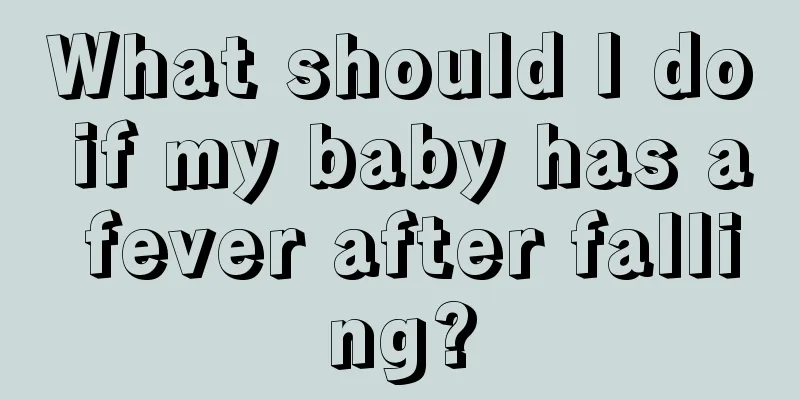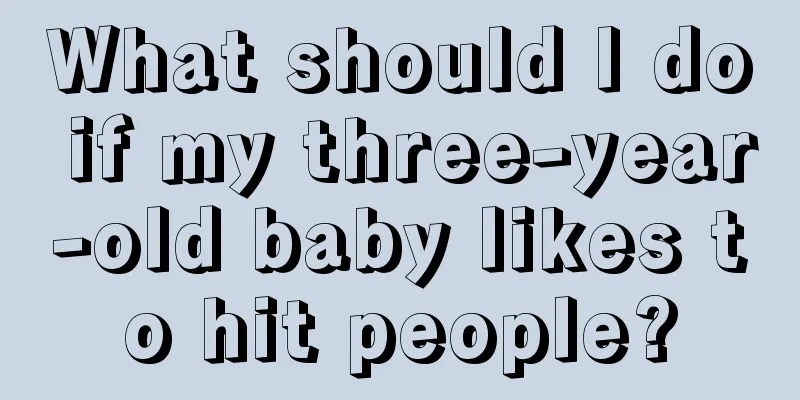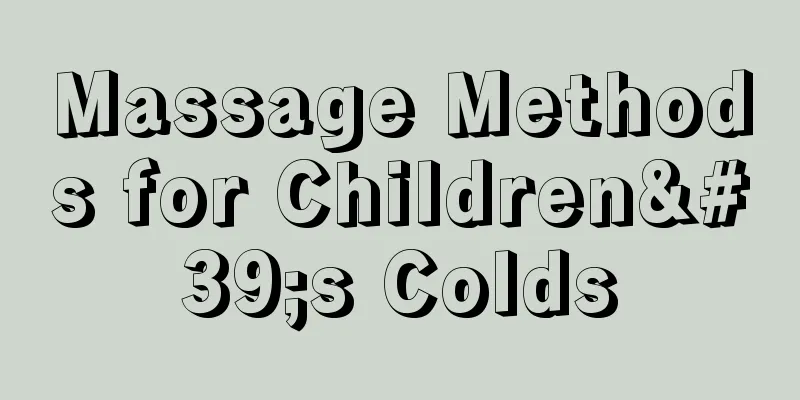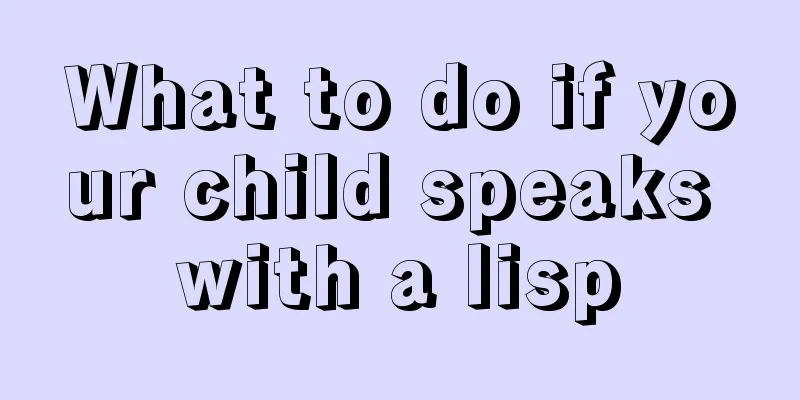What should I do if my baby has a fever after falling?

|
It is very easy for babies to fall down. Some babies will not be affected much after falling down and can get up by themselves, but some babies will have a fever after falling down. This is mostly because the baby's nervous system is not fully developed, and the nervous system is damaged after falling down, thus causing a fever. So what should you do when your baby has a fever after falling down? This situation is generally considered to be related to the incomplete development of the child's nervous system. After the nervous system is stimulated, it causes dysfunction of the temperature regulation center and raises the temperature set point. As long as the temperature is not very high, special antipyretic treatment is generally not required. However, if the temperature exceeds 38.5 degrees, antipyretic treatment is generally required. For mild cases, you can seek treatment from a regular and experienced Chinese medicine practitioner with dialectical prescriptions. It is recommended to encourage children to drink more water as much as possible. Another situation is that fever caused by craniocerebral injury and bleeding must be ruled out. If a child has a fever after a fall and is accompanied by projectile vomiting, unconsciousness, etc., he must go to the hospital for examination and diagnosis and treatment in time!
1. Maintain air circulation in the home: If the home has air conditioning, maintain the room temperature between 25-27℃. You can place the child in an air-conditioned room or blow an electric fan around him to slowly lower his body temperature, which will make the child feel more comfortable. But if the limbs are cold and the patient is shivering violently, it means that the patient needs warmth, so he should be covered with a blanket. 2. Take off too many clothes: If the baby's limbs and hands and feet are warm and the whole body is sweating, it means that the baby needs to dissipate heat, so he can wear fewer clothes. 3. Warm water bath: Undress the baby and rub the whole body with a warm water (37℃) towel. This will dilate the blood vessels in the baby's skin and release body qi. In addition, when water vapor evaporates from the body surface, it will also absorb body heat. 4. Sleeping with an ice pillow: It helps to dissipate heat, but it is not recommended for younger children because it is difficult for young children to turn their bodies, and the ice pillow can easily cause local overcooling or hypothermia. You can also use a cooling patch. When the water in the gelatinous substance of the cooling patch evaporates, it can take away the heat and will not cause excessive cooling.5. Drink more water to help sweating and prevent dehydration. Water has the function of regulating temperature, which can lower body temperature and replenish water lost in the baby's body. 6. Use antipyretics: When the core temperature (rectal temperature or ear temperature) of an infant or young child exceeds 38.5°C, you can use antipyretic solutions or suppositories appropriately. If you have a fever, it is best to see a doctor. But sometimes it is inconvenient to reduce the fever at home first. Generally, if the body temperature is below 38, there is no need to reduce the fever. |
<<: What should I do if my baby is frightened and has a fever?
>>: What should I do if my baby has a fever and black stools?
Recommend
When is the nap time for a three year old baby?
Many mothers hope that their children can get eno...
What are the dangers of lumbar puncture in children?
The physical health of children is something that...
Babies who are breastfeeding have a lot of stomach and smelly farts. Eat more of these vegetables to relieve the problem.
Because the baby does not come into contact with ...
What are the reasons why children are thin and don't like to eat?
Parents all hope that their children grow up stro...
Symptoms of horizontal lines on baby's nails
In fact, there are still many things you need to ...
When can babies eat rice?
For children, milk is their only food when they a...
Children wetting the bed at night
Moreover, many parents have always been troubled ...
What to do if baby's stool is blue?
The baby's stool is blue. Mothers should not ...
What should I do if my child keeps blinking? Parents, please remember these measures
Everyone has the habit of blinking, but some chil...
Symptoms of cold stomach in baby
A cold stomach is also known as stomach cold. The...
How does autism develop? 4 major factors to know!
Autism is a type of autistic disorder, so it is a...
Children often wake up crying when sleeping
If a child often wakes up and cries while sleepin...
What are the symptoms of anxiety in children?
Many children are prone to anxiety in their daily...
What are the symptoms of severe calcium deficiency in infants?
When an infant shows severe calcium deficiency, p...
What should I do if small red spots suddenly appear on my child’s face?
Children's skin is relatively tender and prob...









